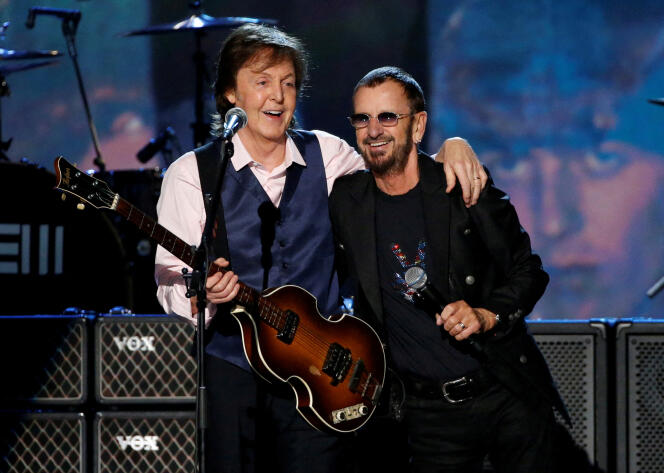


By autumn 1963, The Beatles had already stolen hearts in the UK with their fourth single, She Loves You, soon to be followed by I Want to Hold Your Hand. They lent a helping hand to their friends The Rolling Stones, who were also trying to break through, by covering their song I Wanna Be Your Man. Fast forward sixty years later, and the two biggest British Invasion bands are back in the headlines. On October 20, the Stones released Hackney Diamonds, their 24th studio album, which features 81-year-old Paul McCartney on the bass, who, for his own part, released Now and Then on November 2 with the other surviving member of the Fab Four, drummer Ringo Starr. It was announced with Sgt. Pepper-level fanfare as "probably the last Beatles song."
This is false since the Liverpool Four split up in 1970. Furthermore, "the last Beatles song," or at least the one featuring John Lennon, George Harrison, McCartney and Starr together in the studio for the last time was I Want You (She's So Heavy), the long, obsessive blues track mixed on August 20, 1969, that features on the album Abbey Road. McCartney and Starr's anachronistic forgeries, aided and abetted by Lennon's widow Yoko Ono, have done nothing to change this fact.
Now and Then is in fact the third attempt to represent a Lennon solo composition, post-break-up, as a Beatles creation. So it is no more a Beatles song than Imagine or Woman. McCartney may well claim that this initiative would have met Lennon's approval, but there is no evidence to suggest that the reclusive New Yorker had any intention of entering into any joint project prior to his assassination on December 8, 1980. In an interview with Playboy magazine shortly before his death, he said "no way" to this hypothesis, saying it was not "serious."
In an interview with the BBC in 2021, McCartney blamed his former bandmate for the divorce. That may well be the case, but why not respect his wishes? Originally, Now and Then was one of four unfinished Lennon songs that Yoko Ono entrusted to McCartney in 1994 to finalize by adding instruments. Two of those songs, Free as Bird and Real Love, went on to be featured on the first two volumes of the Anthology series in 1995 and 1996. They had help in the production from George Harrison – who had declared that "the Beatles would not get back together as long as John Lennon was dead" – and his friend Jeff Lynne (Electric Light Orchestra). Recorded by Lennon on piano in 1977, Now and Then was quickly discarded at Harrison's request due to its poor audio quality. The guitarist, who died in 2001, is no longer around to veto it. The technological flaw was overcome by isolating and cleaning the voice using Artificial Intelligence, an operation carried out by New Zealand director Peter Jackson, who used the same process in his documentary series The Beatles: Get Back (2021).
You have 35% of this article left to read. The rest is for subscribers only.
